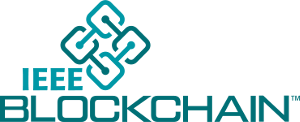Enabling Multilevel Data Sharing Based on Blockchain and Smart Contract
Chunming Rong, University of Stavanger; and Antorweep Chakravorty, University of Stavanger
IEEE Blockchain Technical Briefs, July 2018
Data sharing has become a popular daily life activity all around the world. Data driven value creation has foreseen potential in many sectors, for example energy, health, banking, insurance and transportation. However, violations of user privacy and digital rights management (DRM) in form of unintended data use, corporate applications and security breaches are being widely reported across multiple sources [1,2,3]. This is further highlighted with growing public concerns about their online behavior and the enforcement of regulations such as EU General Data Protection Regulation (GDPR) [4]. A major impediment in delivering privacy is the lack of frameworks that provide accountability and transparency for distributed IT services; hence it becomes difficult for users to understand, influence and determine how their service providers honor their obligations. Therefore, it demands a shift in the data management paradigm which needs to put the user in the center of all operations performed on their data.
Blockchain [5, 6] is an innovation for creating distributed trust between users facilitating exchange of value over a network. It can be seen as a decentralised read only database operated collectively by participants in the network. Participants in the network are entities that support, maintain and facilitate a blockchain. These participants could be anonymous individuals banding together to provide computational capacity to support a public network or different organizations that provide computing infrastructure to support an enterprise blockchain application through a permissioned consortium network. In case of public networks, anonymous miners across geographical boundaries cohesively work together to validate and confirm transactions and in permissioned networks a consortium of distinct organizations needs to maintain consensus on each transaction that gets committed to the blockchain. Each participant locally maintains the same version of this ledger in their own environment and agrees upon any updates or changes to its state. This enables trust to be distributed throughout the network, without the need for a central intermediary. The decentralisation of trust allows the blockchain technology to be transparent, secure, auditable, redundant and immutable. Since each participant maintains the same version of the truth, it removes the potential of conflict and risk of single point of failure. Additionally, it also enhances the trust of end users using applications hosted on such blockchain networks as they are able to get confirmation about operations on their data from multiple distinct entities rather than a single centralized party.
Blockchain and other distributed ledger technologies (DLTs), through recent development, enables not only transactions, but also smart contracts [7, 8, 9] allowing complex computation on a network, where in transactions are enveloped in a computer code that emulate the logic of contractual clauses. Smart contracts can exchange money, property, data, shares or anything of value in a transparent and conflict free way without the need of a middleman, government agency, bank, lawyer or a notary. Participants responsible for maintaining a blockchain processes transactions only after successful verification of a smart contract. This allows enforcement by the community, of terms and conditions around an agreement in similar fashion to that of traditional contracts. Smart contracts would allow definition of criterias based on which two parties can agree to exchange, operate and retract information.
Harnessing such developments on blockchain and smart contracts, has led to the potential of disruptive decentralized applications that aim to provide end users the ability to trace, retract, revoke and limit sharing of content. It would give the digital right and sharing control power back to the data creator, which is often considered as lost once it is shared today. Innovative business models across various sectors could be developed from data management, social networks, supply chain, energy to smart cities.
- New data management platforms could facilitate a sharing economy [14, 15] where in, enterprises would get access to authentic prospect data and their customers would be rewarded for sharing data. A blockchain would record data/value exchange from an owner to receiver. It would validate transactions through smart contract based criterias on purpose of use, availability and contract nullification conditions that an owner and receiver agree.
- User centric social networks [10, 11] could allow users to share content as transactions on a It would enable them to have lineage and traceability on their content and the ability to enforce conditions through smart contracts on any operations on their data.
- Interactive applications for smart energy ecosystems could also be supported on a blockchain for peer to peer and community level energy trading [12, 13]. User transactions on energy prosumption could be recorded in the blockchain to facilitate trading of their excess energy with their neighbourhood and the grid. Custom business centric tokens on the blockchain as a payment option would allow users to earn such rewards for trading and use them for payment of services within the ecosystem.
- Efficiency in global supply chains would be improved using blockchain for trust and security in digities document workflow allowing a tamper proof repository for documents and shipping events reducing barriers, delays and frauds [16].
- The use of blockchain technology in smart cities is multifaceted. Along with providing city utility providers and communities opportunities to develop new business models, it would also allow citizens to control what information they share with their cities. In this case, the user owns their data, not the owner of the application. Users can choose how much data they are willing to share. Furthermore, the cities can use the analytics generated by the user data to make informed decisions on future urban developments by participating in a smart contract that would defined the rules of engagement.
Multilevel data sharing based on Blockchain and Smart Contract allows building of trust between enterprises and customers by providing the necessary tools and services for the data owner to be in the driver's seat of their data. It further cultivates ample opportunities for new disruptive business applications across various sectors by bringing trust to internet services. The research, innovation and adaptation of decentralized blockchain applications would lead to revolutionizing of the current information and data service industry within this decade.
References
[1] V. Goel. Facebook tinkers with users’ emotions in news feed experiment, stirring outcry. The New York Times, 2014.
[2] J. Ball. Nsas prism surveillance program: how it works and what it can do. The Guardian, 8, 2013
[3] Cadwalladr, Carole, and Emma Graham-Harrison. "Revealed: 50 million Facebook profiles harvested for Cambridge Analytica in major data breach." The Guardian 17 (2018).
[4] EU GDPR Portal. (2018). EU GDPR Information Portal. [online] Available at: https://www.eugdpr.org
[5] S. Nakamoto. Bitcoin: A peer-to-peer electronic cash system, 2008.
[6] A. Hayes. Evidence for bitcoin. Altcoin Price Efficiency: Miners’ Arbitrage in Cryptocurrency Markets, 2014.
[7] V. Buterin. A next-generation smart contract and decentralized application platform. white paper, 2014
[8] S. Halevi, D. Harnik, B. Pinkas, and A. Shulman-Peleg. Proofs of ownership in remote storage systems. In Proceedings of the 18th ACM conference on Computer and communications security, pages 491–500. ACM, 2011
[9] A. Kosba, A. Miller, E. Shi, Z. Wen, and C. Papamanthou. Hawk: The blockchain model of cryptography and privacy-preserving smart contracts. University of Maryland and Cornell University, 2015.
[10] Chakravorty, A., & Rong, C. (2017, January). Ushare: user controlled social media based on blockchain. In Proceedings of the 11th International Conference on Ubiquitous Information Management and Communication (p. 99). ACM.
[11] D. Konforty, Y. Adam, D. Estrada, and L. G. Meredith. Synereo: The decentralized and distributed social network. 2015.
[12] Mengelkamp, E., Gärttner, J., Rock, K., Kessler, S., Orsini, L., & Weinhardt, C. (2018). Designing microgrid energy markets: A case study: The Brooklyn Microgrid. Applied Energy, 210, 870-880.
[13] Aitzhan, N. Z., & Svetinovic, D. (2016). Security and privacy in decentralized energy trading through multi-signatures, blockchain and anonymous messaging streams. IEEE Transactions on Dependable and Secure Computing.
[14] Chohan, U. W. (2018). The Concept and Criticisms of Steemit. SSRN.
[15] IOTA. (2018). IOTA Data Marketplace – IOTA. [online] Available at: https://blog.iota.org/iota-data-marketplace-cb6be463ac7f?gi=c036fb543344
[16] Nash, K. S. (2016). IBM pushes blockchain into the supply chain. The Wall Street Journal. Available online:https://www.wsj.com/articles/ibm-pushes-blockchain-into-the-supplychain-1468528824
 Professor Chunming Rong is the head of the Center for IP-based Service Innovation (CIPSI) at the University of Stavanger (UiS), Norway and adjunct Chief Scientist leading Big-Data Initiative at IRIS. His research work focuses on Cloud Computing, Daya Science, Energy Informatics, Security and Privacy. He is an IEEE senior member and is honored as member of the Norwegian Academy of Technological Sciences (NTVA) since 2011. He has extensive contact network and projects in both the industry and academic. He is steering member of IEEE Cloud Computing and Steering Chair of IEEE CloudCom conference and workshop series. He is the co-Editors-inChief of the Journal of Cloud Computing (ISSN: 2192-113X) by Springer and associate editor of the IEEE Transactions on Cloud Computing (TCC). Professor Rong is also a keynote speaker on "Service Security in Cloud" at IEEE CloudNet conference in Luzembourg, 2014. Professor Rong has extensive experience in managing large-scale R&D projects funded by both industry and funding agencies, both in Norway and EU. Chunming will be the Chief Technology Officer (CTO).
Professor Chunming Rong is the head of the Center for IP-based Service Innovation (CIPSI) at the University of Stavanger (UiS), Norway and adjunct Chief Scientist leading Big-Data Initiative at IRIS. His research work focuses on Cloud Computing, Daya Science, Energy Informatics, Security and Privacy. He is an IEEE senior member and is honored as member of the Norwegian Academy of Technological Sciences (NTVA) since 2011. He has extensive contact network and projects in both the industry and academic. He is steering member of IEEE Cloud Computing and Steering Chair of IEEE CloudCom conference and workshop series. He is the co-Editors-inChief of the Journal of Cloud Computing (ISSN: 2192-113X) by Springer and associate editor of the IEEE Transactions on Cloud Computing (TCC). Professor Rong is also a keynote speaker on "Service Security in Cloud" at IEEE CloudNet conference in Luzembourg, 2014. Professor Rong has extensive experience in managing large-scale R&D projects funded by both industry and funding agencies, both in Norway and EU. Chunming will be the Chief Technology Officer (CTO).
 Dr. Antorweep Chakravorty is an Associate Professor at the University of Stavanger, Norway. His current research and development work is in the field of applied Blockchains, Big Data, Large Scale Machine Learning, and Data Privacy. He has an interest in real-world problems, especially development of privacy enabled data-driven services in smart energy, healthcare, and smart city domains. Antorweep completed his PhD. in 2015 with a thesis on Privacy Preserving Big Data Analytics at the University of Stavanger, Norway. Along with having a background in applied research in data-driven solutions, he is also involved in mentoring, teaching and supervision. He spent 6 months on a research exchange program at IBM Thomas J. Watson Research Center, New York, USA.
Dr. Antorweep Chakravorty is an Associate Professor at the University of Stavanger, Norway. His current research and development work is in the field of applied Blockchains, Big Data, Large Scale Machine Learning, and Data Privacy. He has an interest in real-world problems, especially development of privacy enabled data-driven services in smart energy, healthcare, and smart city domains. Antorweep completed his PhD. in 2015 with a thesis on Privacy Preserving Big Data Analytics at the University of Stavanger, Norway. Along with having a background in applied research in data-driven solutions, he is also involved in mentoring, teaching and supervision. He spent 6 months on a research exchange program at IBM Thomas J. Watson Research Center, New York, USA.
Editor:
 Dr. Qinghua Lu is a senior research scientist at CSIRO, Australia. Before she joined CSIRO, she was an associate professor at China University of Petroleum. She formerly worked as a researcher at NICTA (National ICT Australia). She received her PhD from University of New South Wales in 2013. Her research interest includes architecture design of blockchain applications, blockchain as a service, model-driven development of blockchain applications, reliability of cloud computing, and service engineering. She has published more than 70 peer-reviewed academic papers in international journals and conferences. She is an IEEE member and serves on the Program Committees of a number of international conferences in blockchain, cloud computing, big data and software engineering community.
Dr. Qinghua Lu is a senior research scientist at CSIRO, Australia. Before she joined CSIRO, she was an associate professor at China University of Petroleum. She formerly worked as a researcher at NICTA (National ICT Australia). She received her PhD from University of New South Wales in 2013. Her research interest includes architecture design of blockchain applications, blockchain as a service, model-driven development of blockchain applications, reliability of cloud computing, and service engineering. She has published more than 70 peer-reviewed academic papers in international journals and conferences. She is an IEEE member and serves on the Program Committees of a number of international conferences in blockchain, cloud computing, big data and software engineering community.
Subscribe to the IEEE Blockchain Technical Briefs
Join our Blockchain Technical Community and receive our Technical Briefs by email.
IEEE Blockchain Technical Briefs Editorial Board
Gora Datta, FHL7, SMIEEE, SMACM, Managing Editor
2024 Editorial Team
Justin Y. Shi, PhD, Editor-in-Chief
Boleslaw K. Szymanski, PhD
R.L. Shankar, PhD
Imran Bashir
Nicolae "Nicu" Goga, PhD
Constantin “Viorel” Marian, PhD
View the 2023 IEEE Blockchain Technical Briefs Editorial Board
View the 2022 IEEE Blockchain Technical Briefs Editorial Board
View the 2018-2020 IEEE Blockchain Technical Briefs Editorial Board
Past Issues
Read the top five most popular IEEE Blockchain Technical Briefs articles.
Read more (PDF, 731 KB)



